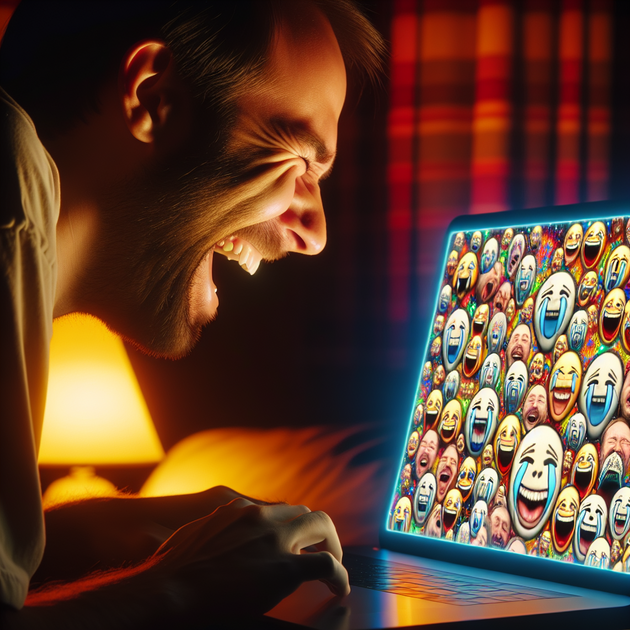Why do some memes make us laugh until we cry—even when they don’t seem all that clever on the surface? If you’ve caught yourself scrolling through your feed and suddenly bursting into laughter over a random image or joke, you’re definitely not alone. Lots of people have wondered the same thing. So what’s really going on when you find yourself laughing at memes?
The Psychology Behind Laughing at Memes
Laughing at memes isn’t just about finding something funny. There’s actually a lot happening in your brain when that familiar giggle hits. According to psychologists, humor taps into some pretty deep parts of our minds. Memes often use surprise, absurdity, or relatable situations to trigger a response. Our brains love patterns and twists—so when a meme flips expectations or nails a shared experience, it can set off instant laughter.
Studies from sources like Psychology Today explain that memes create a kind of “inside joke” effect. If you recognize the reference or the format, you feel included—and being part of an in-group is naturally rewarding for humans. That rush of recognition is sometimes all it takes to make something hilarious.
Why Do Some Memes Go Viral?
Not every meme gets shared millions of times. So what sets off viral laughter? It usually comes down to relatability and timing. If tons of people see themselves in the joke—or if it connects to something happening right now—it spreads like wildfire.
Here are a few reasons certain memes spark widespread laughter:
- Relatability: The best memes highlight everyday struggles or weird little moments everyone recognizes.
- Simplicity: Quick jokes with simple images are easy to understand (and share fast).
- Absurdity: Sometimes things are just so random they short-circuit your serious brain—think surreal animal images or nonsensical captions.
- Timeliness: Memes about trending topics tap into what everyone’s already talking about.
- Clever Twists: A familiar format with an unexpected punchline can catch people off-guard in the best way.
For example, when everyone was talking about “Distracted Boyfriend,” it wasn’t just the silly image—it was how easily people could insert their own lives or current events into the template (Vox explains this trend). That mix of relevance and creativity is meme magic.
Laughter Online vs. Real Life
It turns out that laughing at memes online isn’t quite the same as sharing a joke face-to-face. Online laughs often happen alone (or maybe with friends via group chat), but they still create a sense of connection across huge distances. According to researchers at BBC Future, sharing memes helps people feel understood—even if they’ve never met each other in person.
There’s also something about that “scroll and surprise” factor online. You never know what’ll pop up next on your feed—so when something totally unexpected appears, it can catch you off guard in a good way.
A Personal Meme Moment
One time during a long day working from home (when coffee wasn’t even doing its job), a friend sent over a meme featuring a cat looking completely overwhelmed by an overflowing email inbox. It wasn’t anything groundbreaking—just a simple picture with “Monday Mood” plastered on top—but for some reason it hit just right. Laughed out loud alone in my kitchen… then immediately sent it to three more friends who replied with crying-laugh emojis within seconds.
That moment wasn’t unique—it happens every day for millions online! Sometimes all it takes is seeing your own feelings reflected back through someone else’s silly creation.
The Takeaway: Why Are We Laughing?
Laughing at memes is more than just goofing around online—it’s about community, relatability, and sometimes just needing a quick mental break from whatever’s going on. The next time you find yourself asking “why am I laughing at this?” remember there’s real science behind those giggles.
Curious if there are other reasons people laugh so much online—or do you have your own favorite meme that always gets you? Share your funniest finds or thoughts below!

Leave a Reply